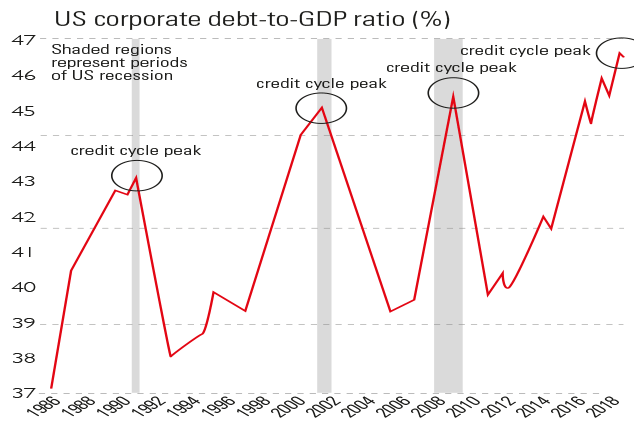
Not for the first time, America has “fought a debt bubble by adding on more debt”, says David Rosenberg of Gluskin Sheff. Consumers delevered a tad after the financial crisis, but the state and corporations went on a binge.
Total US non-financial corporate debt has hit a record of more than 46% of GDP. Indeed, the chart of corporate debt-to-GDP this cycle looks “a lot like the mortgage debt-to-GDP ratio of a decade ago”. And just as we saw with the mortgage market, the “junky nature” of company debt is a major worry.
Half the $6trn investment-grade corporate paper market is made up of BBB-rated debt – the lowest level before it officially becomes junk. The value of the BBB segment has soared fivefold in a decade.
Viewpoint
“The current system of business rates is crushing the life out of the high street while handing a big competitive advantage to online retailers with little in the way of a physical presence. This imbalance needs correcting… to my mind the best response to the challenges of the digital age would be to shift from a tax based on property to one levied on sales. Today’s savvier retailers are often a mix of online and physical, in symbiotic relationship with one another. A small levy at point of sale, or alternatively with online sales at point of delivery, would allow similar levels of revenue to be raised at local level for local use. In any case, the tax treatment of Amazon and the high street would end up exactly the same. Can a government paralysed by Brexit be persuaded? Don’t hold your breath.”
Jeremy Warner, The Sunday Telegraph